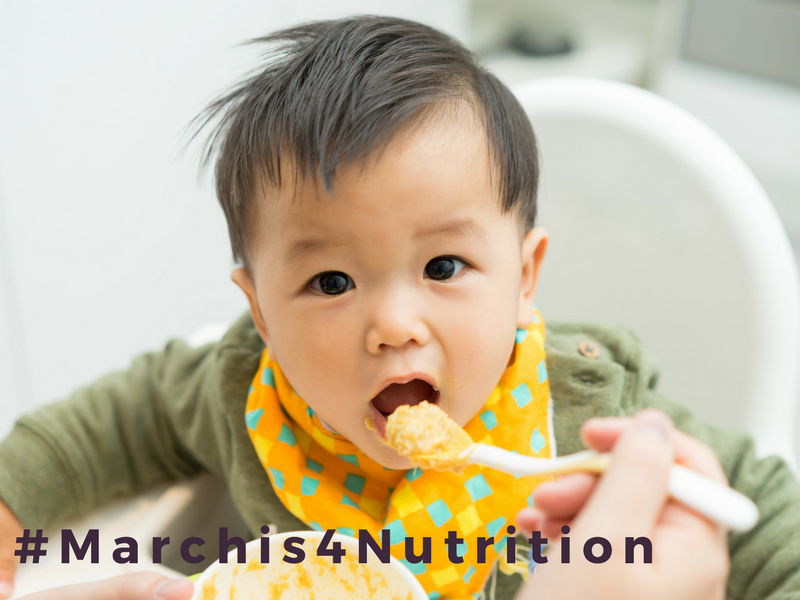#Marchis4Nutrition: What if moms had access to affordable, safe and nutritious foods?

In honor of National Nutrition Month, 1,000 Days is hosting its annual #Marchis4Nutrition campaign to amplify the critical role the world’s mothers play in nourishing the next generation. All month long, we have been imagining a world in which moms have the support they need to give their children a healthy start to life. This week we’re asking:
What if moms had access to affordable, safe and nutritious foods?
Moms and their babies need access to healthy and safe foods in order to thrive. Yet, 1 in 6 young children in the United States live in food insecure households. And around the world, over 800 million people are chronically undernourished, lacking enough food to eat. Too many families worldwide simply don’t have access to affordable and nutritious food because of food scarcity or poverty.
Further, the safety of infant and toddler foods isn’t always guaranteed. Some infant and toddler foods are contaminated with bacteria like salmonella or heavy metals like lead, which can have a long-lasting impact on the health and development of young children. But the contaminates aren’t always publicly reported, thus leaving parents blindly unaware of the toxins in their foods.
Ensuring women and young children have access to safe, affordable and nutritious foods would result in healthier moms, healthier babies and better birth outcomes. Fewer babies would be born low birth weight, children’s brains and bodies would develop well, and ultimately more children would have the opportunity to reach their full potential.
“If moms had access to affordable, safe, and nutritious foods, more children could survive and thrive.”
– Asma Lateef, Director of Bread for the World Institute
So, what will it take to ensure women and children have access to the healthy foods they need?
Proven-effective programs that reach low-income families with healthy foods and nutrition education are a critical investment in the health and well-being of babies and young children. In the U.S. the Special Supplemental Nutrition Program for Women, Infants and Children (WIC) helps improve the diets and health of over 7 million women, infants and children every month. Women participating in WIC receive vouchers for whole grains, vegetables and other healthy foods, along with nutrition counseling and breastfeeding support. The results are clear: women who participate in WIC give birth to healthier babies that are more likely to survive infancy.
Around the world, counseling and training helps provide women with the knowledge they need to understand what foods are healthy and safe for them and their families. In Uganda, biofortification programs like those run by HarvestPlus and World Vision help rural families grow nutrient rich foods and also teach communities about the benefits. Mothers like Esther are now able to give their children a healthy start with nutritious foods like her homegrown sweet potatoes.
To ensure that infant and toddler foods are as safe as possible we must create and enforce stronger food safety regulations. Organizations like the World Health Organization, the U.S. Food and Drug Administration and Codex must continue their work on food safety.
“Parent should be focused on getting the most nutritious food for their child. They should not have to worry about contaminants such as lead, inorganic arsenic, perchlorate and phthalates in their children’s food.”
– Tom Neltner, Chemicals Policy Director for Environmental Defense Fund
ALL families need support in accessing safe, affordable and nutritious food – and that starts with empowering moms with information to make healthy choices for their families. Join the #Marchis4Nutrition conversation on Facebook and Twitter this month and tell us what you think: What does the world look like if moms and young children had access to safe, affordable and nutritious food?
